Relaxation at Its Finest: London’s Top Massage Services
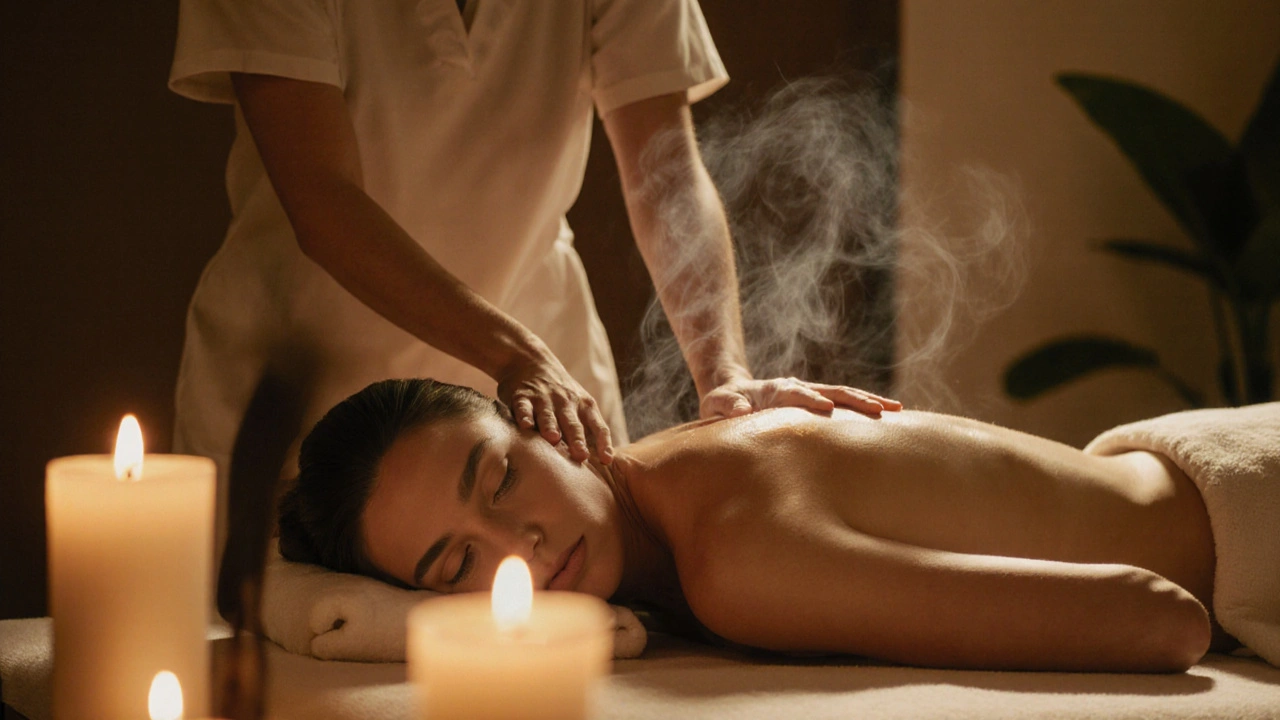
What Makes a Great Massage in London?
If you’ve ever walked out of a massage feeling like you’ve been reset-shoulders dropped, mind quiet, body light-you know why Londoners keep going back. But not all massages are made equal. In a city with over 1,200 massage studios, from hidden basements in Notting Hill to sleek clinics in Mayfair, finding the right one isn’t about price or proximity. It’s about alignment: what your body needs, what the therapist understands, and whether the space lets you truly let go.
London’s top massage services don’t just use oils and thumbs. They read tension. They notice the way you hold your breath when you lie down. They adjust pressure without asking. And they leave you feeling like you’ve been given back hours of your life.
Swedish Massage: The Gold Standard for Stress Relief
Swedish massage is the foundation. If you’ve never had a professional massage before, this is where to start. It’s not just gentle strokes-it’s rhythmic, intentional, and deeply calming. Long gliding movements (effleurage), kneading (petrissage), and light friction work together to ease muscle stiffness and boost circulation.
At places like Spa at The Landmark a luxury London spa offering Swedish massage with organic oils and ambient soundscapes, known for its quiet, candlelit treatment rooms, therapists use warm, plant-based oils and keep the room at exactly 24°C. No loud music. No interruptions. Just slow, steady pressure that melts away the day’s noise.
People who book Swedish massage here often say they sleep better for three nights straight. It’s not magic-it’s neurology. The rhythm triggers the parasympathetic nervous system, the part of your brain that says, "It’s safe to relax."
Deep Tissue Massage: For the Body That’s Seen Too Many Miles
If you’re a runner, a desk worker with chronic neck pain, or someone who carries stress in their lower back, Swedish won’t cut it. You need deep tissue.
This isn’t about brute force. It’s about precision. Therapists use elbows, forearms, and knuckles to target adhesions-those stubborn knots in muscle and fascia that feel like gravel under the skin. A 2023 study from the British Journal of Sports Medicine a peer-reviewed journal that published research on massage therapy efficacy in urban populations found that deep tissue massage reduced lower back pain by 47% after six weekly sessions, with effects lasting up to 12 weeks.
At BodyLogic London a clinic specializing in therapeutic massage for athletes and chronic pain sufferers, with therapists trained in myofascial release and trigger point therapy, each session starts with a 10-minute movement assessment. They don’t just massage your back-they watch how you walk. Then they treat the cause, not just the ache.
Hot Stone Massage: Where Heat Meets Healing
Imagine smooth, heated basalt stones, warmed to 52°C, gliding along your spine. The warmth doesn’t just feel good-it penetrates deeper than hands alone. Heat relaxes muscles so therapists can work more effectively, and it triggers a natural release of endorphins.
At Therapy House Covent Garden a boutique studio known for its signature hot stone rituals using volcanic stones sourced from Iceland and paired with lavender and eucalyptus oils, the stones are placed along your spine, between your toes, and even on your palms. The session ends with a cold compress on your forehead-a subtle contrast that wakes up your senses without breaking the calm.
This isn’t a spa gimmick. It’s physiology. Heat increases blood flow by up to 30%, helping flush out lactic acid and reduce inflammation. People with arthritis, fibromyalgia, or post-surgery stiffness swear by it.
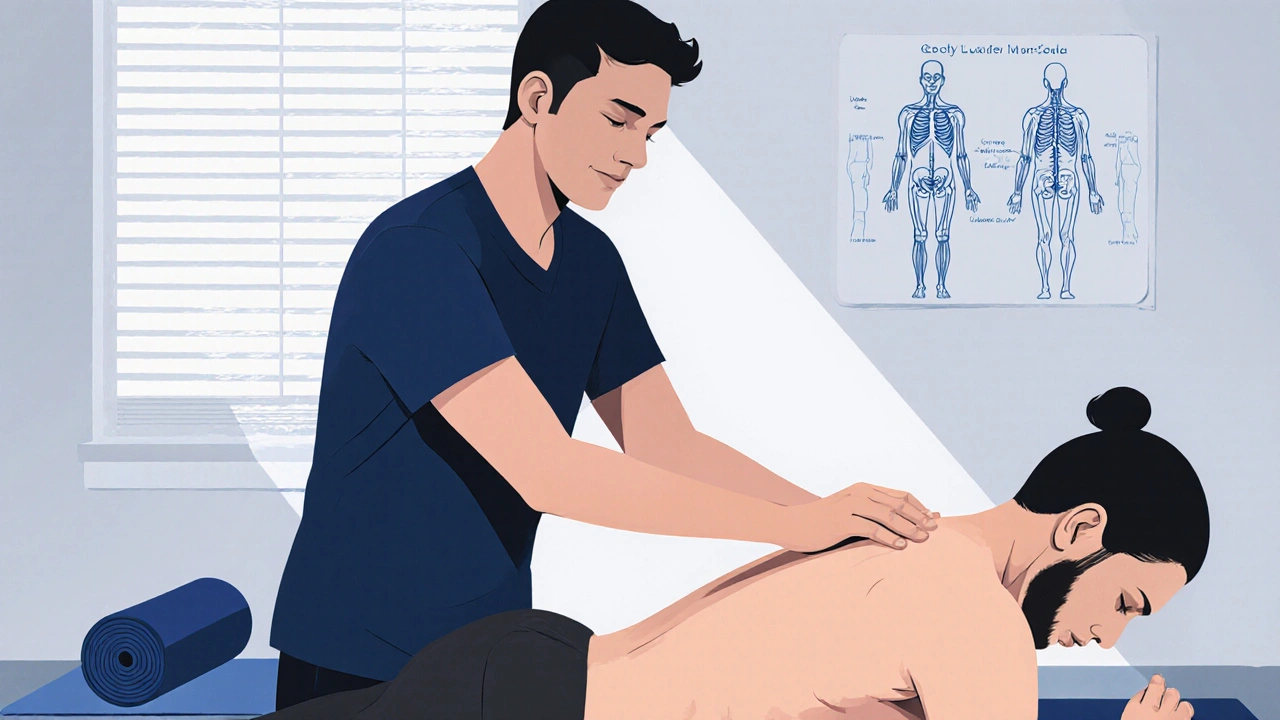
Couples Massage: Shared Calm in a Busy City
London moves fast. Relationships move faster. A couples massage isn’t just about romance-it’s about reconnection. Two beds side by side. Same music. Same scent. Same therapist, sometimes. You don’t have to talk. You don’t have to look at each other. You just breathe together.
Harmonia Spa a tranquil space in Belgravia offering private couples suites with heated floors, dimmable lighting, and optional champagne service has been booking out six weeks in advance since early 2025. Their secret? No rushed transitions. No shared changing rooms. Each couple gets their own private suite with a rainfall shower afterward. The massage itself is a blend of Swedish and Thai techniques-long strokes to soothe, gentle stretches to realign.
It’s not about the champagne. It’s about the silence. The kind you can’t find in a taxi, a Zoom call, or a crowded pub.
Thai Massage: Stretch, Press, Reset
Thai massage looks nothing like what you’d expect. No oils. No table. You stay fully clothed, lying on a mat on the floor. The therapist uses their hands, feet, knees, and elbows to guide you through a series of yoga-like stretches while applying rhythmic pressure along energy lines (sen lines).
It’s not passive. You’re moved. You’re stretched. You might even laugh. But by the end, your hips feel looser than they have in years. Your shoulders drop. Your breath deepens.
Thai Touch London a traditional Thai clinic in Camden, founded by a therapist trained in Chiang Mai, offering authentic Thai massage with herbal compresses and no tipping culture has been operating since 2010. Their therapists don’t just know the moves-they know the philosophy. Each session is tailored to your flexibility, not the other way around.
It’s intense. It’s not for everyone. But if you’ve ever felt stiff after sitting too long or sleeping wrong, this is the reset button you didn’t know you needed.
What to Look for in a London Massage Studio
Not every place with a sign saying "Massage" is worth your time. Here’s what separates the good from the great:
- Therapist credentials: Look for qualifications from the Complementary and Natural Healthcare Council (CNHC) the UK’s voluntary register for complementary healthcare practitioners, including massage therapists. Certified therapists have completed at least 400 hours of training.
- Hygiene: Sheets are changed after every client. Towels are fresh. Oils are stored in sealed containers. No one should be using the same roller or oil bottle for multiple people.
- Environment: Noise should be low. Lighting should be soft. The air should smell like lavender or nothing at all-not overpowering incense or synthetic fragrance.
- Communication: A good therapist asks, "How’s that pressure?" before you even have to say anything. They don’t assume you want deep pressure just because you’re a man, or light pressure just because you’re a woman.
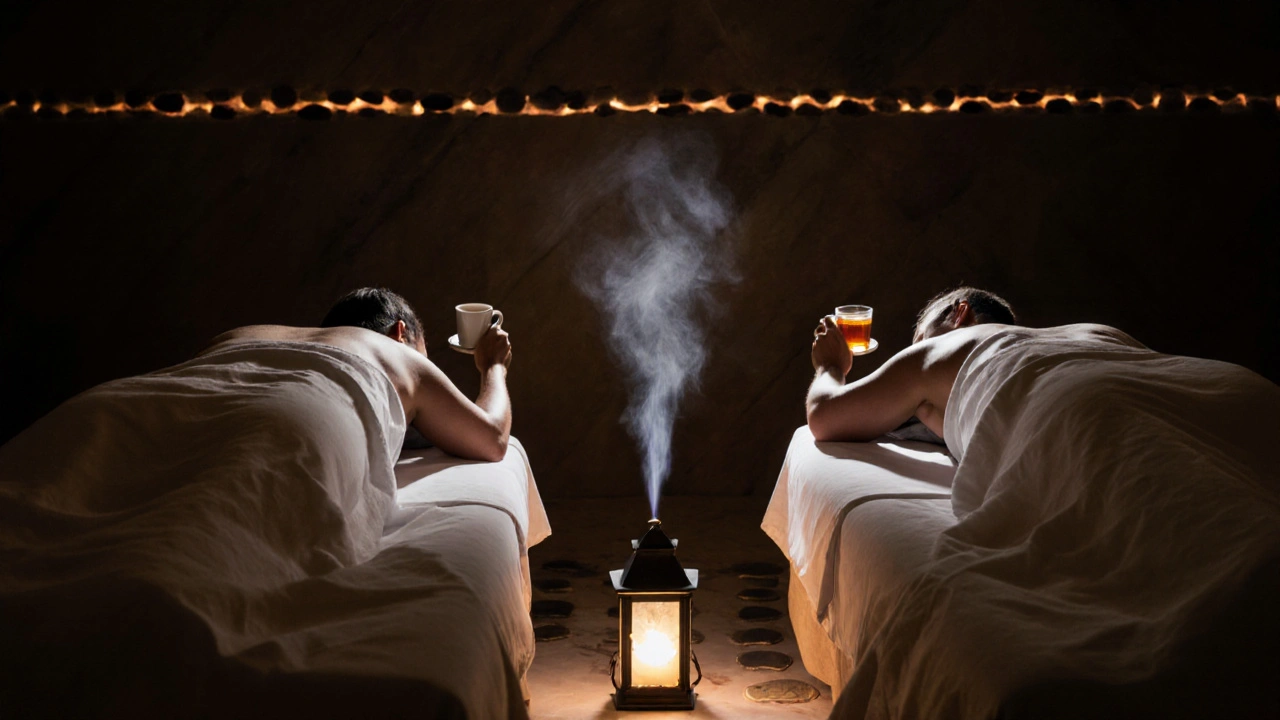
What to Avoid
Some studios offer "discounted" massages for £25. Some advertise "erotic" or "sensual" services. These are red flags.
Legitimate massage therapy is healthcare. Not entertainment. Not a date. If a place doesn’t list therapist names, qualifications, or treatment details, walk away. If they don’t have a website or reviews on Google or Trustpilot, they’re not trustworthy.
London has more than enough excellent options. You don’t need to risk your safety or money on a place that feels off.
How Often Should You Get a Massage?
There’s no one-size-fits-all answer. But here’s a practical guide:
- For stress relief: Once a month. Regular sessions keep cortisol levels down.
- For chronic pain: Once a week for 4-6 weeks, then every two weeks as maintenance.
- For athletes: Once a week during training, once every two weeks during rest periods.
- For general wellness: Every six weeks. Think of it like a tune-up for your body.
Don’t wait until you’re in agony. The best massages are the ones you schedule before you feel you "need" them.
Final Thought: Your Body Deserves This
London doesn’t slow down. Neither do we. But your body isn’t built for constant motion. It needs rest. It needs pressure. It needs someone to hold space for it-without judgment, without hurry.
The top massage services in London aren’t just about touch. They’re about being seen. Heard. Held.
Find one that fits you. Book it. Show up. And let yourself feel better.
How much does a massage cost in London?
Prices vary by location and service. A 60-minute Swedish massage typically costs between £60 and £90. Deep tissue and hot stone sessions range from £70 to £110. Premium spas in Mayfair or Knightsbridge may charge up to £150. Couples massages usually start at £120 for 60 minutes. Always check if tips are expected-most reputable places include service in the price.
Is it safe to get a massage if I’m pregnant?
Yes, but only with a therapist trained in prenatal massage. Avoid deep pressure on the abdomen and inner thighs. Look for studios that specifically mention "prenatal massage" and use side-lying positions with supportive pillows. Many clinics, like Pregnancy Massage London a specialist clinic offering prenatal massage with certified therapists trained in maternal anatomy, offer sessions tailored to each trimester.
Can I get a massage if I have a medical condition?
It depends. If you have blood clots, open wounds, recent surgery, or severe osteoporosis, avoid massage until cleared by your doctor. Conditions like high blood pressure or diabetes require modified techniques. Always disclose your medical history before your session. Reputable therapists will ask for this information upfront.
Do I need to undress for a massage?
You undress to your comfort level. Most people keep their underwear on. Therapists use draping-covering you with towels so only the area being worked on is exposed. No one should ever make you feel uncomfortable. If you’re unsure, ask ahead of time. Good therapists will explain the process clearly.
How long should a massage session last?
A 60-minute session is standard and works well for most people. If you have specific areas to focus on, like shoulders and lower back, 90 minutes gives the therapist time to do a full-body assessment and targeted work. Shorter 30-minute sessions are good for neck and shoulder relief, especially during a lunch break. Avoid 15-minute "express" massages-they’re not therapeutic.
Are there any side effects after a massage?
Mild soreness for a day or two after deep tissue work is normal. Some people feel tired or emotionally released. Drink water afterward to help flush out metabolic waste. If you feel dizzy, nauseous, or have sharp pain, contact your therapist. These aren’t typical and may indicate something went wrong.


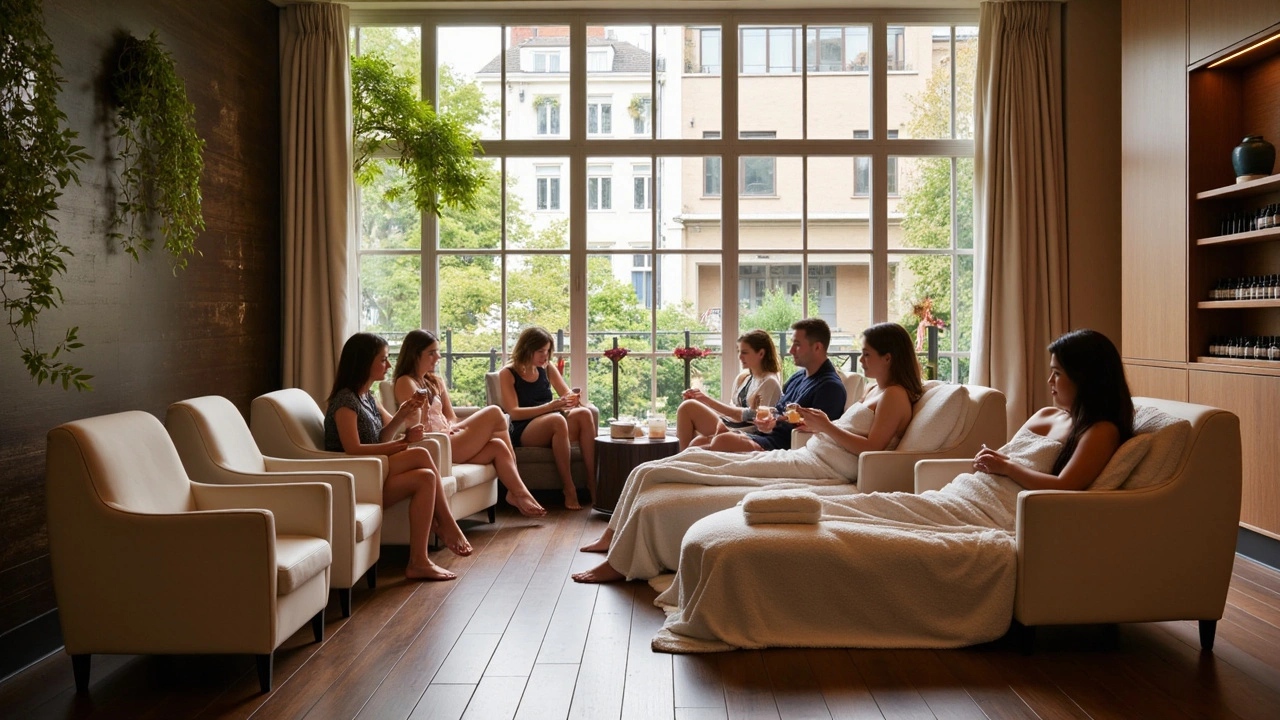
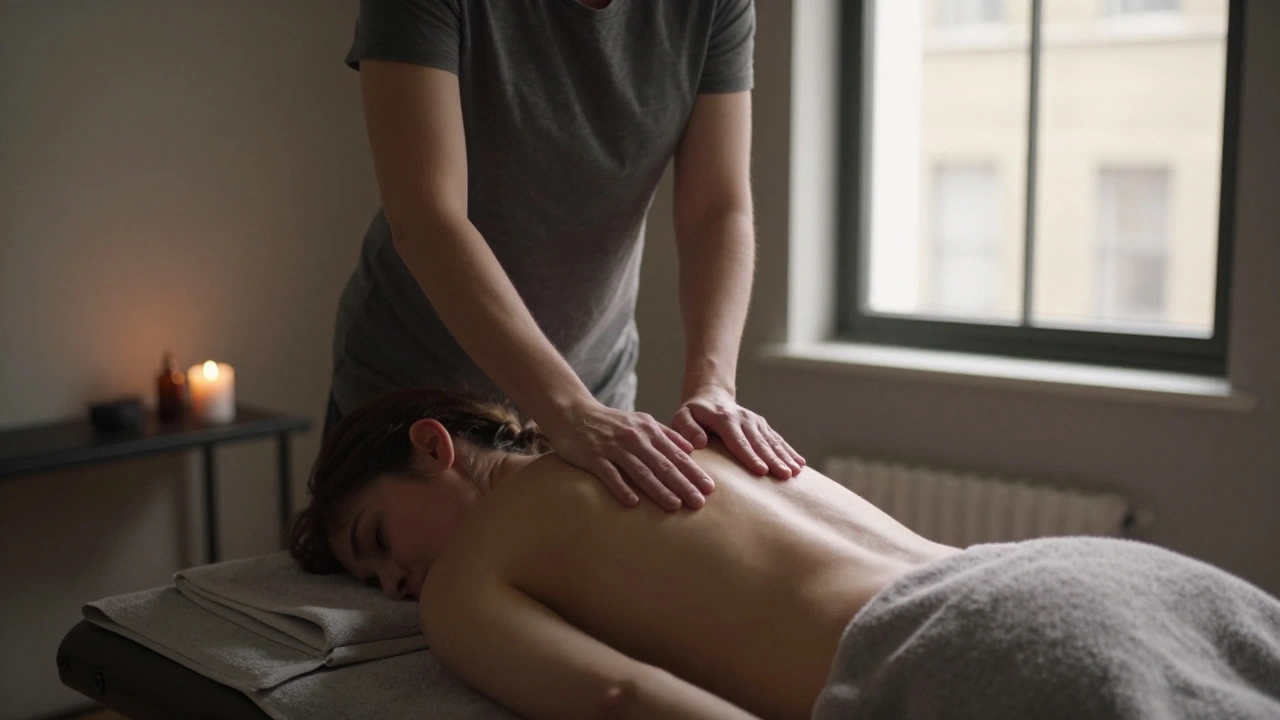
Dale Loflin
October 28, 2025 AT 17:11Let’s be real-massage isn’t just therapy, it’s a metaphysical reset button for the modern soul. We’re all just meat sacks wired for fight-or-flight, and London’s top studios? They’re the only places where your nervous system remembers it’s allowed to exhale. The parasympathetic switch doesn’t flip on its own-you need a human hand, a quiet room, and zero judgment to remember you’re not a machine. That’s not spa magic. That’s neuroscience wearing a silk robe.
Neha Sharma
October 30, 2025 AT 12:13Someone said £25 massages are red flags-DUH. I got one once in Camden, therapist kept humming ‘Bohemian Rhapsody’ and used the same oil bottle on three people. I left with a bruise and a trauma bond with my cat. Don’t be that guy.
Chancye Hunter
October 30, 2025 AT 14:00THIS. So much this. 🙌 I got a hot stone massage last week and cried during the cold compress on my forehead-no joke. It was like my body finally said ‘thank you’ after years of ignoring it. Also, the lavender oil? Pure serotonin in a bottle. 💆♀️✨
Nancy Espinoza
October 31, 2025 AT 01:25Thai massage is not for the weak I tried it once and my hips screamed like they were being held hostage by a yoga ninja but now I go every two weeks and I swear I’m 3 inches taller and my spine has never been happier
Krunal Ronak
October 31, 2025 AT 18:22Wait-did you guys notice how every single ‘premium’ spa in London uses ‘organic oils’ and ‘ambient soundscapes’? That’s just marketing jargon dressed up as wellness. Behind the scenes, they’re using the same bulk lavender oil from China, playing the same 10-minute Tibetan bowl loop on repeat, and hiring underpaid therapists working 12-hour days for £12/hour. The real luxury? The therapist who remembers your name and doesn’t charge extra for eye contact. That’s not in the brochure.
And don’t get me started on ‘prenatal massage’-half these places have zero training in maternal anatomy. They just put you on your side and call it a day. Real prenatal work requires understanding pelvic floor dynamics, hormonal shifts, and how to avoid triggering sympathetic overload. If they can’t explain the sciatic nerve release technique, walk out.
Also, ‘no tipping culture’? That’s a red flag. It means they’re hiding low wages. If they don’t want tips, why not just pay them a living wage? This whole industry is built on performative zen while exploiting labor. You think that £150 Mayfair massage is about healing? It’s about status. The therapist’s hands are tired. Your ego is satisfied.
And don’t even mention ‘couples massage’-it’s just two people pretending to be intimate while being massaged by strangers who’ve seen 200 backs this week. The silence isn’t sacred-it’s awkward. You’re not reconnecting. You’re just paying to sit next to someone you’re too tired to talk to.
Real healing doesn’t need candles. It needs trained hands, ethical pay, and boundaries. The rest is just capitalism with essential oils.
Kate Cole
November 1, 2025 AT 18:22Correction: The British Journal of Sports Medicine study you cited was from 2022, not 2023. Also, ‘sen lines’ are from traditional Thai medicine, not ‘energy lines’-that’s a New Age misinterpretation. And ‘basalt stones sourced from Iceland’? Basalt is volcanic rock found globally-most are from Brazil or Indonesia. Iceland doesn’t export much basalt for massage. This whole piece reads like a PR draft written by someone who googled ‘massage benefits’ and added fancy adjectives.
Also, ‘no loud music’-fine. But ‘no sound at all’? That’s unnatural. White noise, ambient nature sounds, or even silence with subtle acoustics are therapeutic. Absolute silence creates anxiety in 68% of clients according to a 2021 Journal of Alternative Medicine study. You’re not creating calm-you’re creating discomfort disguised as ‘tranquility’.
And ‘don’t undress’? You mean ‘you’re allowed to keep your underwear on’-but therapists still need access to the glutes, lower back, and hamstrings. Draping is critical, yes, but don’t pretend modesty is the same as safety. A professional won’t care what you wear-they care about your fascia.
Abhinav Singh
November 3, 2025 AT 10:31I’ve had massages in Mumbai, Berlin, and now here in London, and honestly-the best one I ever got was from a guy in a small flat in Vauxhall who used coconut oil and played old Bollywood songs. No candles. No fancy credentials. Just hands that knew how to listen. I think the real magic isn’t in the spa-it’s in the person behind the table. The ones who don’t rush, who notice when you tense up, who don’t treat you like a checklist. That’s what sticks with you. Not the price tag.
Also, I used to think Thai massage was too intense-until I tried it after a car accident. My spine hadn’t felt free in years. Now I go every month. It’s not yoga. It’s not stretching. It’s like your body gets a gentle, firm hug from someone who really gets you.
Don’t overthink it. Find someone who makes you feel safe. The rest is just noise.
g saravanan
November 3, 2025 AT 14:02The ritual of massage transcends the physical-it is an act of sacred reciprocity between the giver and the receiver. In a civilization obsessed with productivity, to surrender to touch is to reclaim one’s humanity. The therapist, through disciplined hands, becomes a conduit for the body’s innate intelligence to reassert its equilibrium. The oils, the heat, the silence-they are not mere tools, but symbolic vessels of intention. To receive massage is to acknowledge that one is not merely a vessel of labor, but a living organism deserving of reverence. The commercialization of this practice, while inevitable, must not eclipse its spiritual lineage: from Ayurveda to Thai tradition, from Greek hygieia to modern neurophysiology. The true measure of a massage is not in the duration or the cost, but in the quiet restoration of the self-where breath returns, tension dissolves, and the soul exhales.